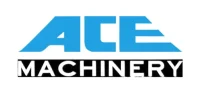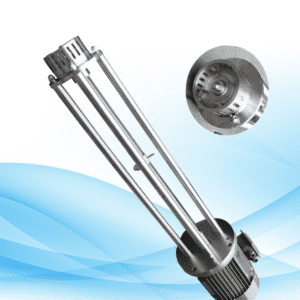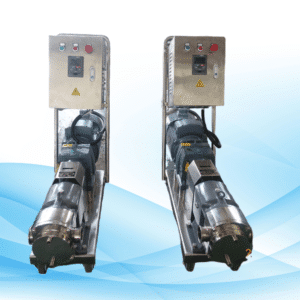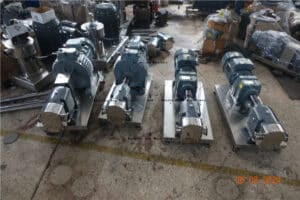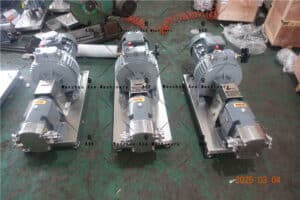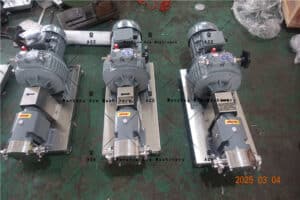Varieties of Vane Pumps
Vanes attached to a rotor are used by a vane pump in order to move liquids. Within a cavity, the rotor spins, which causes sliding in and out of slots by the vanes hence creating pumping action. Efficiency and versatility are some of the reasons why vane pumps are important in various industries. The automotive industry heavily relies on this type of pump for power steering systems while lubrication systems use them also widely. The chemical industry needs these devices too because they help with fluid transfers and many other applications such as oil & gas sector among others. This market is rapidly growing at an estimated CAGR OF 5.94%, expected to reach $3,422 billion by 2028.
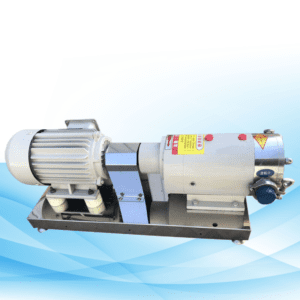
Vane Pump Types
Fixed Displacement Vane Pumps
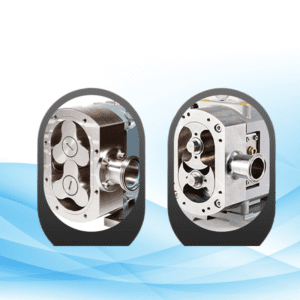
Single Chamber Vane Pumps
Having one compartment where fluid gets trapped and transported is what single chambered means about single chamber vane pumps; thus providing even flow rates throughout which makes them suitable for applications requiring steady delivery of fluids like hydraulic presses or constant speed motors etcetera.. This design ensures less pulsation leading into better efficiency within any given system so designed since always it only needs minimal number changes before finding out which combination gives best results under prevailing conditions then adopting that as final solution – no more trials required! Single-chambered ones are therefore mostly utilized in hydraulic systems as well as lubrication systems.
Double Chamber Vane Pumps
These types have two compartments that trap fluids but unlike their counterpart with only one chamber; they can transport more liquids simultaneously hence allowing higher flow rates when compared against those having just one chamber.. It should be noted however that this improvement comes at a cost because more parts will be needed during manufacturing process thereby increasing production expenses for double-chamber variants over single-chambered models – all other things being equal (ceteris paribus). Double-chambered ones can also perform better within installations requiring variable flows like industrial machinery or mobile equipment where pressure changes occur frequently.
Variable Displacement Vane Pumps
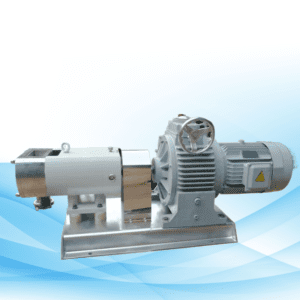
Pressure Compensated Vane Pumps
Flow rate adjustment depending on pressure requirements of the system is what these types do best. They are able to keep up performance by compensating for variations in pressures thus ensuring efficiency under different operating conditions. Pressure compensated vane pumps work well where it’s critical to maintain specific pressures such as hydraulic power steering systems with load sensing valves that control them so as not let exceed certain levels.
Load Sensing Vane Pumps
In a load sensing pump, flow rates change according to demand made by loads being acted upon at any given time; this helps save power because only required quantities get supplied hence reducing energy wastage altogether. Consequently load sensing type is commonly applied in construction machines and other equipments used within industries where varying loads may exist thereby necessitating accurate fluid controls during operation.
Sliding Vane Pumps – Construction & Design
Designed with slots on which blades slide back and forth when rotating inside them, sliding vane pumps create pockets for trapping fluid between rotor & casing walls. Rotor revolves around its axis while blades follow cam path so that contact remains continuous between all components involved (rotor, blades, cam) throughout entire cycle of operation – no momentary gaps occur along their surfaces even at highest speeds attainable during working process.. Such tightness guarantees sealed environment necessary for handling some chemically aggressive substances or those having high volatility levels associated with them in various industrial sectors like petrochemical plants etcetera…
Mechanism of Operation
Flexible Vanes for Pumps
Main Features
Several features make the flexible vane pumps distinct as a type of positive rotary displacement pumps. The veins in these machines are movable thus can be bent to fit the shape of the chamber being pumped into. This makes it possible for them to handle fluids having different viscosities effectively. Also, their design ensures that they form a tight seal with walls of the chambers which prevent any leakage and maintains steady rate flowing.
Another feature is that it can self-prime itself. A vacuum created by these types of pumps lets them draw liquid without external help into them. They are most suitable where there is need for strong suction performance such as when dealing with some solid particles or viscous materials like heavy oil. Furthermore, this equipment has low pulsation levels and accurate control over flow hence ensuring smooth operation within various industrial environments.
Usually, construction of flexible vane pump involves use of hardened parts which resist wear thus extending its working life cycle . Additionally, easy maintenance is achieved through simple steps taken during disassembling and reassembling process thereby minimizing downtimes while improving overall system efficiency.
Common Applications
Due to their adaptability, flexible vane pumps find wide use across different sectors. In automotive industry, they are applied in power steering systems as well fuel transfer applications. This is because these items can handle fluids having diverse viscosity levels including those used for cars lubrication.
Food processing industry on the other hand employs them when dealing with thick liquids like syrups or sauces while pharmaceutical sector may require accurate fluid control during metering/dosing drugs which calls for precision offered by such devices . Chemical processing industry also benefits from utilizing this kind since it can withstand corrosive substances commonly found within chemicals manufacturing plants.
Other than that , industrial machinery may need them for providing lubricants plus transferring hydraulic fluids among other uses too . All these points out at how versatile and efficient flexible vanes for pumps could be in various areas.
Vane Pumps Applications
Automotive Industry
Power Steering Systems
Vehicles power steering systems rely on vane pumps to generate hydraulic pressure. The pumps ensure smooth and responsive steering by providing a constant flow of hydraulic fluid. Vane pumps are efficient and reliable, making them suitable for this application because they can handle different pressures under diverse driving conditions.
Transmission Systems
Vehicles transmission systems employ vane pumps which circulate the transmission fluid. This fluid lubricates the moving parts thus reducing frictional forces between them while in motion or when at rest. For instance, low viscosity fluids like oils used in automobile gearboxes require that there should always be continuous supply of such lubricant throughout all components involved so as to prevent metal-to-metal contact from happening; hence these units keep maintaining steady stream rates necessary for ensuring proper functionality within automotive transmissions during operation regardless of speed ranges achieved by vehicle being driven. Flexible vanes also work well with higher viscosities encountered within heavy-duty trucking applications.
Industrial Applications
Hydraulic Systems
Hydraulic systems found in industrial machinery use vane pumps for power transmission purposes. These devices provide required pressures needed to drive various types of hydraulic actuators or motors used within such setups . Moreover, consistent flow rate delivered by these machines ensures efficient working condition s for any given hydraulics system while their capability to handle light liquids like water, petrol etc., enhances versatility across different industries where these substances may be involved.
Lubrication Systems
Vane pumps are used by lubrication systems to supply lubricants to machine parts. It reduces friction, and stops wear and tear. Vane pumps provide a continuous flow of oil so that equipment can operate more effectively. They are ideal for use on industrial lubrication system because they do not pulsate much and have precise control over the quantity of fluid delivered.
Food and Beverage Industry
Handling Viscous Fluids
In the food and beverage industry, vane pumps are commonly employed in the transfer of thick liquids like syrups or sauces without damage or contamination. With a tight-sealing design that also guarantees sanitary conditions are maintained, these pumps prevent leaks which could compromise hygiene standards while being able to accommodate various viscosities during different stages in food processing.
Sanitary Pumping Solutions
Pumps used within sanitary pumping solutions for food processing must meet strict cleanliness requirements; this is where vane-type models come into play since their design ensures easy cleanability thus minimizing downtime associated with cleaning procedures. These types of machines offer reliable performance when it comes to transferring fluids which makes them suitable for use with beverages such as milkshakes among others due to its simplicity in operation coupled with high efficiency levels attained during fluid transfers besides being easy maintainable.
Chemical Processing
Transfer Of Corrosive Fluids
Vane pumps work well at moving corrosive substances encountered in chemical industries because they are built strong enough to withstand such harsh conditions where other pump types would fail under these circumstances. This robustness is achieved through the use materials resistant against corrosion which extends its lifespan by preventing any form rusting from occurring inside or outside the pump thus ensuring reliability even when handling abrasive media found within aggressive chemical environments along with maintaining constant flow rate irrespective changes system pressure enhancement operational efficiency since consistent delivery required always provided regardless nature pumped medium.
Various low-viscosity liquids can be handled by vane-type units including solvents, petrol among other alcohol based fluids thereby making it versatile for use across different sectors within the chemical industry. The design of vanes also guarantees there is no wear tear even if harsh chemicals are involved during this process. Furthermore, its maintenance can be done easily which adds onto why it is most suited for use in chemical processing plants.
Metering And Dosing
In metering and dosing applications that require precise control over flow rates, vane pumps are an excellent choice due to their ability to provide accurate flow control needed for such tasks. These types of machines have been designed with provision fine tuning flow rate hence ensure exact amounts delivered at all times. This is very critical especially when dealing with some chemicals where specific proportions must be maintained throughout a given procedure.
Another reason why they are preferred is because vanes can adjust themselves automatically depending on changes load conditions thus ensuring efficiency while working under varying situations unlike other pumps which may fail operate properly once fluid levels drop below certain point or pressure reduces significantly in supply vessel leading either batch failure completion defective products therefore reliable this aspect necessary keeping up reliable reaction processes within chemical plant.
Pulsation in positive displacement pumps is undesirable especially when handling sensitive substances during manufacturing therefore vane models offer low pulsation characteristics that make them suitable for metering applications within this sector as well. The smooth continuous flow generated by these units ensures unbroken production runs since any form interruption would lead loss time besides increasing chances obtaining defective items thus creating more work need rectify situation thereby introducing unnecessary costs into organization budgetary allocations towards correction measures while high reliability easy control makes vanne important tool used chemical processing industry
Drawbacks
Wear and Tear
Over time, vane pumps tend to wear out. These vanes move in and out of slots, producing friction. If not serviced on a regular basis, they might break down. It is important to replace the worn-out parts so that they can continue working.
Limited for Use with Certain Fluids
Vane pumps are designed to handle only specific types of fluids. They work well with low viscosity liquids. On the other hand, high viscosity or abrasive fluids may spoil them. Therefore one should choose the right pump for their system’s durability.
Knowing different kinds of vane pumps as well as their applications can help optimize industrial processes. Each type has its own strengths hence it is necessary that we pick the most suitable one for our needs. For example sliding vanes can handle various solvents without self-lubrication while flexible vanes are good at dealing with different viscosities of fluids hence ensuring smooth running.
Efficiency and reliability in automotive systems up to chemical processing among others greatly depends on proper selection of a vane pump. Dig deeper into other materials which will give you more understanding thus enabling accurate choices for your industry needs.
